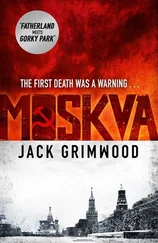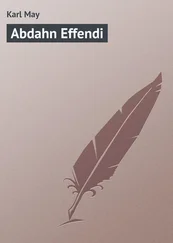“What happens now?” the Spetsnaz asked. “To me and Nadia.”
“Your cousin?”
“My niece. My brother’s child.”
“Sanctuary,” said Raf. “Asylum. New identities if that’s what it takes. Help us and we will help her.”
Gregori smiled grimly. “It takes time to recover from something like that.” He jerked his head towards the silent wall. “And sometimes people never do, but you already know this, don’t you?”
“Maybe,” said Raf, “it will take much less time than you think. Now . . .” He pulled a final photograph from his jacket. “Tell me if you’ve ever seen this man.”
Eduardo looked at Raf’s outstretched hand, clicked the relevant bit of his brain into gear and shook it. And kept shaking until Raf patiently prised free his own fingers.
“Excellency.” Eduardo’s smile was shaky. His eyes still tearful. All he’d had to do was click on a voice recorder when Raf said turn it on and click it off when Raf said do that; but the ancient recording of a Moslem girl being tortured kept repeating in his head.
“One of the best,” Raf said to Hakim, as Eduardo turned away. “One of the best.”
Hakim looked doubtful.
“I mean it,” said Raf, and watched Eduardo shuffle away from Café Athinos, dodging traffic until he finally reached his ancient Vespa, which was parked up next to the Corniche wall. It took Eduardo five goes to kick-start the machine.
The man cost Champollion less than the precinct paid out each week for fresh coffee and still counted himself lucky.
“Guard the hospital,” said Raf to the two men remaining, well aware that Hakim and Ahmed were really meant to guard him. By giving them other duties he freed himself up; they both knew that and were powerless to do anything about it. And besides, governors of Iskandryia were supposed to be impossible to work for, it went with the job description. “Find the prisoners proper clothes,” he added as an afterthought, “and get a doctor in to see to the girl’s back.”
Raf caught the look in Hakim’s eye. No matter what had really happened, an enhanced version would be round the precinct within minutes. His officers could be relied on to guarantee that his reputation lived up to its reputation.
“She’ll live,” said Raf as he slipped on his shades and collected his own jacket from the back of Ahmed’s café chair.
There were at least fifteen other cars on the road, now that the curfew had been lifted. They were old, battered and driven by grinning men who waved to friends and sometimes complete strangers. It was an irony of the EMP blasts that those whose vehicles were oldest were those least affected.
Garages were still shut but the electricity was back in a third of the city and standpipes were already being removed from at least one arrondissement, which now had water. Shops were reopening. All of the newsfeeds had miraculously been restored. Foreign reporters were busy doing talking heads about how El Iskandryia was slowly getting back on its feet.
On his way out of the city, Raf halted the Bentley beside an overflowing irrigation ditch and tossed in the tiny recorder. The woman on it had died long before he was born; and although the recording, smuggled at great risk from a cellar in Kosovo, had not been allowed as evidence at a later trial, a copy of the recording had found its way to Amnesty. Their “democracy in action” radio advertisement was judged political and banned in twenty-four of the twenty-six countries in which it was due to run.
“What now?”
“His Excellency Ashraf al-Mansur . . .” St. Cloud’s majordomo was careful not to look at his master. Not seeing things he shouldn’t see formed a substantial part of his duties. “He demands admittance.” The small Scot spoke the word with such relish that the Marquis looked up and almost blew his carefully constructed, syncopated rhythm.
Luckily the object of his interest kept moving, eyes fixed into the far distance. Drugs, familiarity or fear had emptied the adolescent’s smooth face of anything except boredom and an instinct for absolute obedience.
“Show him in.”
“Sir?”
“Show in al-Mansur.”
The majordomo bowed and withdrew, walking backward from the chamber.
“The Marquis will see you now.” He gestured politely towards a large door and the unacceptability of what lay beyond. “You may find him . . .” The majordomo hesitated. “A little distracted.”
Raf entered without knocking. Unlike the tiled, fountained and pillared Moorish fantasy that was Dar St. Cloud, the Marquis’ villa overlooking Cap Bon in Tunisia, the drawing room of his house at Aboukir could have been transported wholesale from Paris.
Gérard’s Cupid and Psyche hung in pride of place on the far wall. An adolescent Cupid chastely kissing the brow of a blonde girl who stared wide-eyed straight at the door where Raf stood, her hands folded neatly below naked breasts. A Vulcan Surprising Venus and Mars hung beside it, a huge canvas edged in heavy gilt, with the frame so massive that it almost touched both ceiling and floor. And on other walls, endless young nymphs gazed innocent-eyed at lean shepherd boys, oblivious to their own seminakedness.
A Napoleon III sideboard was positioned directly beneath the Gérard, its top a single slab of horsehair marble cut from a quarry outside Milan. Along the top were ranged naked glass figures, mostly Lalique, and two decanters.
“Pour yourself a small drink.” The Marquis spoke without looking up or releasing the figure still sitting on his lap (what with the shaved skull and baggy shirt, it was impossible to tell if St. Cloud’s companion was male or female). “This won’t take long.”
“It might,” said Raf, “if we’re going to cover who had Kamil Quitrimala kidnapped, why three tourists were butchered to order, a casino burned and the pipeline to a refinery cut. And that’s before we . . .”
“Out,” said St. Cloud crossly. And the adolescent to whom he spoke disappeared in a flurry of coltlike legs and a flash of thin buttocks. The oversized shirt was St. Cloud’s own, Raf realized; its use a badge of ownership or fondness received, perhaps both.
“Gang warfare for the casino and kidnapping . . . Psychopaths for the murders, variously dead, I believe. And I assume the Sword of God was behind the refinery, just as it was behind those outrageous EMP bombs.” The Marquis gave a smile.
“You assume wrong.”
St. Cloud looked at him.
“What,” said Raf, “do you know about the Osmanli Accord?”
“Less than nothing.” St. Cloud’s voice was firm. “I never bother myself with politics.”
“So it would shock you to discover that, behind the scenes, Berlin needs French agreement to retain its spheres of influence . . . As does Moscow?”
The Marquis snorted. “The idea that Berlin would ask anything of Paris is as unbelievable as . . .”
“The idea that someone French might demand a price of Berlin,” Raf said smoothly. “Well, while you’re at it, imagine that breaking Hamzah was the only result to matter in our little local crisis.”
“Hamzah Effendi?” St. Cloud shook his head. “Surely not . . .”
Raf nodded. “Imagine everything else was just so much means to an end. So the question I have to ask is, Who would want to damage Hamzah?”
“Who indeed . . .” said St. Cloud. “I suspect we’ll never know. Always assuming there was somebody.” He stood up from his elegant Louis XVIII chair, casually slipped himself back inside his trousers and made for the sideboard.
“Are you sure . . . ?” His hand hovered above a brandy balloon.
“Absolutely,” said Raf. “Beyond doubt.”
Читать дальше












